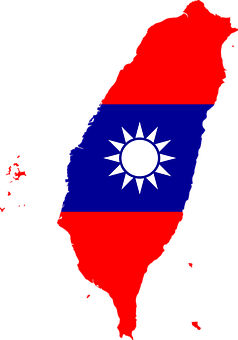The US Army is hedging its bet that China won’t invade Taiwan, by laying out a detailed, multi-pronged strategy for deterring a future war in the Pacific. It may, however, be too little and too late. DOD’s budget cuts under the Biden Administration do not bode well for advances in American preparedness for war in the numerous flashpoints existing in today’s world. During a talk on China this week at the American Enterprise Institute (AEI), US Secretary of the Army Christine Wormuth told the gathering “… obviously [we] have to prepare, to be prepared to fight and win that war.” She then added a mixed message signaling that she personally was “not of the view that an amphibious invasion of Taiwan is imminent.” Officials in Beijing analyzing her words might take this message to imply the US is not concerned about the threat, or that such an act would be below the threshold requiring a response from Washington. Translated into Chinese the word imminent can mean “working towards something.” It doesn’t have the same sense of urgency or intensity as the English word.
Secretary Wormuth’s use of “imminent” is significant. By Western definition the concept of an imminent threat is traditionally understood in a temporal sense to mean that a state is faced with a physical danger that is both real and could occur within an immediate time frame. Under those conditions a state, or a partner of a threatened state, understands the threat to be at the center of the timeline extending into both the past and near future.
One issue related to the Chinese threat toward Taiwan is that the United States and China have very different concepts of linear time. The US measures time in very short periods or “events,” while Chinese leaders talk in terms of decades and generations. If the CCP leadership believes Secretary Wormuth’s use of the word suggests the US is not seriously concerned about Beijing “working towards” a war with Taiwan, it may alter the timing of the CCP’s military and political policy toward Taipei.
The nexus of two opposing great powers, both commanding advanced weaponry, means that every single word spoken by leaders gets digested and analyzed in both capitals so that analysts can brief their leadership on the threat environment. What serves as a calming domestic political statement spoken in Washington, can act as a military permission slip in Beijing. If the United States puts weapons systems in place in Asia but the leadership in Washington talks about the lack of an imminent threat, Beijing will consider three possible conclusions about American political willpower. First, it could conclude the United States is serious about defending Taiwan because it is moving to reinforce the US Pacific command. Second, the words spoken by American military and political leaders are simply political theater and can be ignored. The third consideration is the most dangerous. Beijing could misinterpret the words to mean that Washington doesn’t see a serious near-term threat in the Pacific. This interpretation provides China more leeway in how it carries out its Taiwan policy and may embolden Xi Jinping to act.
If Xi concludes Washington doesn’t see the danger and will not choose to become involved despite military sales and training exchanges with Taiwan, the Chinese leader may choose to force Taiwan’s hand at the most convenient time for Beijing. It may not be in the form of kinetic warfare as China’s influence operations in Taiwan are extensive, but it could tilt toward a calculated action to force Taiwan under Beijing’s control.
Many military and political analysts in Washington who understand the nuances of the Chinese language and the country’s political culture suggest that their briefings are falling on deaf ears inside the Biden Administration. They argue that the US leadership must improve its understanding of how China perceives the world and responds to comments, like those of Secretary Wormuth.
It is not the first time a few words made a mark in US-China relations. When President Carter recognized mainland China as the legitimate government of the country and formally opened relations, the US renamed its Embassy on Taiwan the American Institute in Taiwan. Essentially it performs the same tasks as any US embassy. The word change allowed Beijing to save face.
In April 2001, a US Navy EP-3A ARIES reconnaissance aircraft collided with a Chinese jet midair. The Chinese pilot was attempting to intimidate the American plane flying in international airspace 70 miles off China’s coastline. The Chinese pilot died when his plane fell into the ocean after hitting the US aircraft. The US plane was damaged and forced to make an emergency landing on China’s Hainan Island. The plane and its 24 crew members were detained. For 11 days the two countries worked to develop the “Letter of the Two Sorries.” The United States in English stated that the country was “very sorry” for the death of the Chinese pilot. In English the wording does not insinuate culpability. For its domestic audience, Beijing translated the sentiment to mean the US took responsibility and made a formal apology. Words matter.
Daria Novak served in the U.S. State Dept.
Illustration: Pixabay
